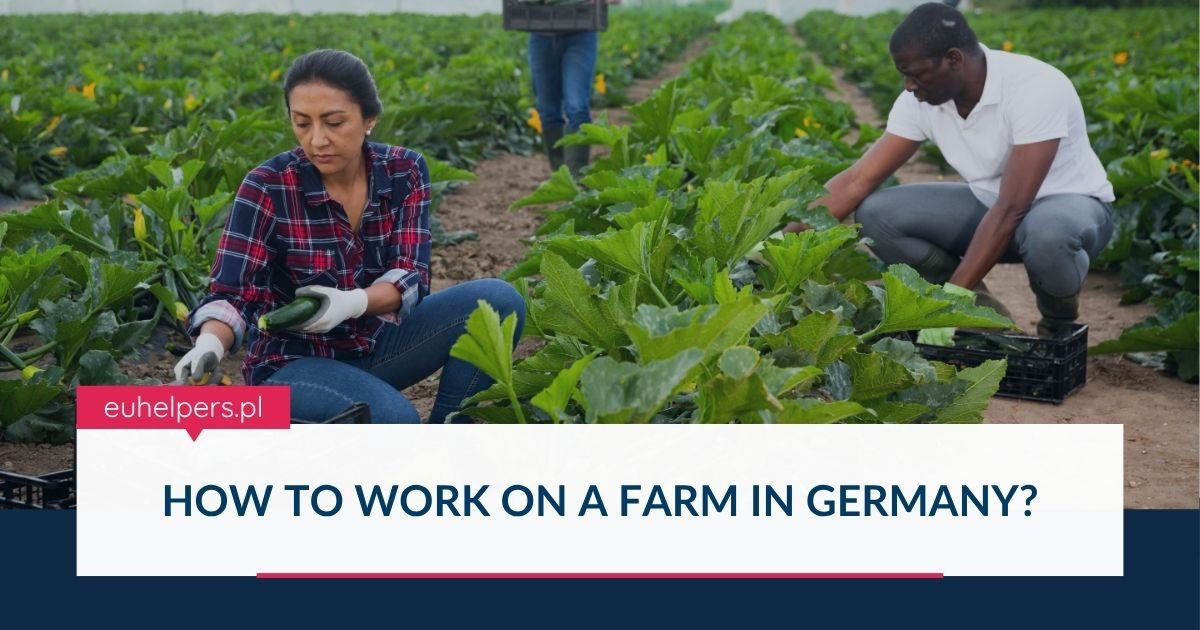Germany has one of the most modern agricultural sectors in Europe, known for its sustainable farming practices, advanced technology, and strong workforce demand. Many farms in Germany require seasonal and full-time workers, making it a great opportunity for locals and international applicants. Whether you’re interested in livestock, dairy farming, fruit picking, or general agricultural work, working on a farm in Germany can be a rewarding experience.
Why Work on a Farm in Germany?
-
High Demand for Workers – Many rural areas face labor shortages, especially during harvest seasons.
-
Cultural Exchange – Farm jobs allow international workers to experience German culture and countryside life.
-
Fair Wages and Benefits – Workers receive competitive pay, often with free or subsidized accommodation and meals.
-
Pathway to Long-Term Opportunities – Gaining work experience in German agriculture can open doors for permanent jobs or vocational training.
Types of Farm Work in Germany
-
Fruit and Vegetable Picking – Seasonal jobs during spring and summer.
-
Dairy Farming – Assisting with milking, feeding, and animal care.
-
Livestock Farming – Cattle, poultry, or pig farm work.
-
Vineyard Work – Grape harvesting and wine production support.
-
Organic Farming – Sustainable agriculture and eco-friendly farm practices.
Requirements to Work on a Farm in Germany
-
Age – Most employers prefer workers above 18 years old.
-
Experience – Previous farm experience is useful but not always required.
-
Language – Basic German helps, but many farms accept English-speaking workers.
-
Work Permit/Visa:
-
EU/EEA Citizens – Can work freely without a visa.
-
Non-EU Citizens – Need a seasonal work visa or employment visa.
-
-
Physical Fitness – Farm work can be physically demanding.
How to Find Farm Jobs in Germany
-
Online Job Portals – Websites like EURES, AgrarJobbörse, Indeed Germany, and Seasonalwork.de.
-
Recruitment Agencies – Agencies that specialize in hiring agricultural workers.
-
Direct Applications – Many farms post jobs on their official websites or local boards.
-
Work Exchange Programs – Platforms like WWOOF (World Wide Opportunities on Organic Farms) offer work in exchange for food and accommodation.
Salary and Benefits
-
Seasonal Farm Workers – Earn between €9.50 – €12 per hour (minimum wage compliant).
-
Monthly Income – Approximately €1,500 – €2,200 depending on hours and type of work.
-
Additional Benefits – Free or low-cost housing, meals, health insurance, and travel allowances (in some cases).
Steps to Start Working on a Farm in Germany
-
Prepare Your CV – Highlight any agricultural or physical work experience.
-
Apply for Jobs – Use portals or contact farms directly.
-
Secure a Work Contract – Essential for visa applications (if required).
-
Apply for a Work Visa (Non-EU applicants) – Submit documents to the German embassy.
-
Travel and Start Work – Most seasonal jobs start in spring and summer months.
Tips for Success
-
Learn basic German phrases for communication.
-
Apply early, as farm jobs fill up quickly before harvest season.
-
Be open to both seasonal and long-term opportunities.
-
Network with other workers for job recommendations.
Working on a farm in Germany is a fantastic way to earn money, gain international work experience, and enjoy cultural exchange. With a strong agricultural sector and high demand for workers, both EU and non-EU citizens can find farm jobs ranging from fruit picking to livestock care. Whether you’re seeking seasonal employment or a long-term agricultural career, Germany’s farms offer excellent opportunities.

